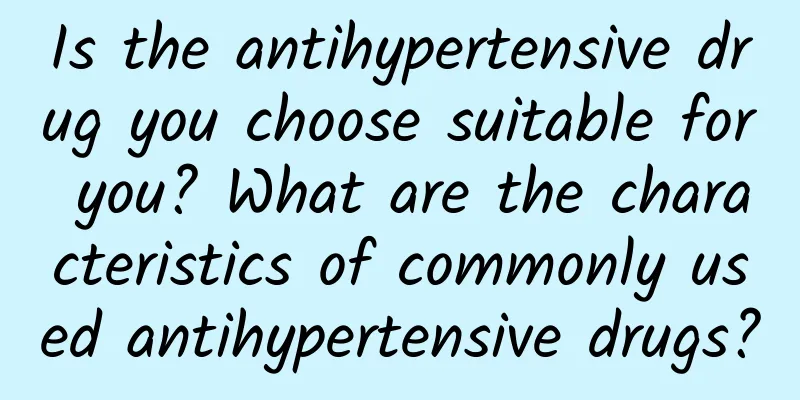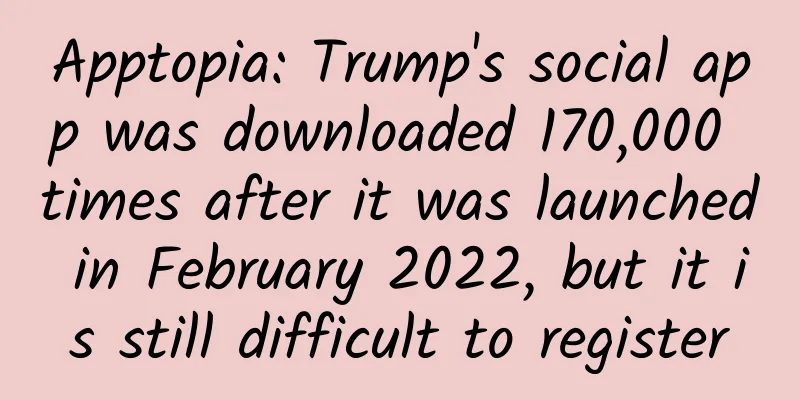Is the antihypertensive drug you choose suitable for you? What are the characteristics of commonly used antihypertensive drugs?

|
Friends with high blood pressure often ask Huazi, there are so many kinds of antihypertensive drugs, how do you know which drug is more suitable for you, how do doctors choose drugs? Huazi said that there are five commonly used antihypertensive drugs, namely dihydropyridine drugs, pril drugs, sartan drugs, loral drugs, and diuretics. If classified by mechanism of action, "pril" and "sartan" can be considered the same category. When prescribing medication, doctors need to choose according to the patient's blood pressure type, whether there are any contraindications to medication, and other conditions. 1. Calcium channel blockers Dihydropyridine calcium channel blockers are called dihydropyridine drugs because they all have the word "dihydropyridine" in their names. Because there are no absolute contraindications, dihydropyridine drugs are the "jack of all trades" among antihypertensive drugs, suitable for various types of hypertension, and are often used in combination with other antihypertensive drugs. Dihydropyridine drugs can prevent calcium ions from entering vascular smooth muscle, causing vasodilation and lowering blood pressure. Due to the significant dilation of blood vessels, adverse reactions such as headache and facial flushing may occur in the early stages of medication. Due to the rapid drop in blood pressure, it may also reflexively cause tachycardia and palpitations. Long-term use of the drug may cause lower limb edema and gingival hyperplasia. When using dihydropyridine drugs, it is advisable to use long-acting preparations and start taking them at a low dose. The best effect is achieved after 7 to 10 days of medication. Therefore, every time you adjust dihydropyridine drugs, you need to observe for about 10 days to determine the efficacy. 2. Inhibition of RAAS system. The mechanism of action of prils and sartans is similar, both of which can inhibit the renin-angiotensin-aldosterone system (RAAS). Prils inhibit angiotensin converting enzyme, which can inhibit the conversion of angiotensin 1 to angiotensin 2; while sartans can block angiotensin 2 receptors on blood vessels. Both drugs work through different pathways, but ultimately inhibit the blood pressure-raising effect of angiotensin 2. Both drugs have a significant dilating effect on the renal arteries and are suitable for hypertensive patients with renal insufficiency. However, it should be noted that bilateral renal artery stenosis is a common contraindication for both drugs. The antihypertensive mechanisms of prils and sartans are similar and can replace each other. However, for elderly hypertensive patients, especially those with cardiovascular diseases, prils are used more often than sartans. Because prils can not only inhibit the production of angiotensin 2, but also act on the bradykinin system, increase the level of bradykinin, and have a stronger protective effect on the cardiovascular system. However, increased bradykinin levels may cause adverse reactions such as dry cough. For those who cannot tolerate it, sartan drugs should be used instead. 3. Lolamine drugs that inhibit cardiac excitability The nerve type on the heart is β1 receptor. Lolamine drugs are selective β1 receptor inhibitors that can inhibit cardiac excitability. For young and middle-aged hypertensive patients with sympathetic nerve overexcitation and a fast heart rate (more than 80 beats per minute), Lolamine drugs have a very obvious antihypertensive effect. For hypertensive patients with coronary heart disease and myocardial infarction, the use of lorexin-type drugs can weaken myocardial contractility, slow down heart rate (heart rate controlled at 55-60), reduce myocardial oxygen consumption, improve cardiac exercise tolerance, and reduce the incidence of angina pectoris and cardiovascular accidents. 4. Diuretics that reduce water and sodium retention and lower blood pressure Diuretics can inhibit the reabsorption of sodium ions and water by the renal tubules, increase urine volume, reduce water and sodium retention, reduce the sodium ion level in the extracellular environment of vascular smooth muscle cells, and lower blood pressure. The characteristics of senile hypertension are that the high pressure increases and the low pressure remains unchanged or is slightly lower. Most of them are volume-type hypertension and are sensitive to sodium salt, so the use of diuretics is more effective. Diuretics are also suitable for hypertensive patients with heart failure. In heart failure, fluid accumulation and edema are likely to occur. Diuretics can effectively reduce fluid accumulation, reduce the heart's preload and afterload while lowering blood pressure, and help alleviate heart failure symptoms and improve the patient's quality of life. To sum up, commonly used antihypertensive drugs include dihydrotestosterone, pril drugs, sartan drugs, loral drugs, and diuretics, which exert antihypertensive effects through different mechanisms of action. Most patients need two or more antihypertensive drugs in combination to effectively lower blood pressure. In actual application, it is necessary to choose according to the different conditions of different patients under the guidance of a doctor. If you have any questions about medication, consult a doctor or pharmacist in time. I am pharmacist Huazi, welcome to follow me and share more health knowledge. |
<<: What god is worshipped in Mount Tai? What is the name of the peak of Mount Tai?
Recommend
Is it normal to delay your period by a week?
It is normal for girls to have menstruation after...
Why does it hurt when women have sex?
Sexual life is a very normal behavior for adults....
Which is easier to lose weight, eating less or exercising?
If you don't lose weight in April, you will r...
How to read Down syndrome screening report
We create angels and hope that they are innocent,...
How to solve urethral itching after sex
The itching of the urethra after sexual intercour...
Slight spotting during pregnancy
If a pregnant woman has slight spotting during th...
What to do if you have nipple sores
Nipple sores are caused by the mother's failu...
Why is it easy to get constipated after giving birth? How to relieve constipation during normal delivery?
Giving birth is a physically demanding thing, and...
A large amount of blood clots during menstruation
Menstruation is something that every female frien...
What should I do if my nipples hurt during my missed period?
We usually call menstruation "Auntie". ...
Why is there an allergic reaction to cucumber facial application?
Cucumber is a delicious vegetable. It was introdu...
Early pregnancy twins B ultrasound picture
If you have twins during an ultrasound examinatio...
What foods should you avoid during pregnancy?
During pregnancy, pregnant women not only need to...
Mammary ductectomy sequelae
The breast is very important for female friends, ...









